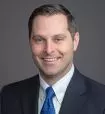On February 17, 2023, the Occupational Safety and Health Administration's (OSHA) Directorate of Whistleblower Protection Programs' new whistleblower complaint intake pilot program (Directive 23-01 (CPL 02)) went into effect, governing complaints covered by OSHA-administered whistleblower statutes. The directive creates a national pilot program changing OSHA's intake process for whistleblower complaints. OSHA tested this program in Region II (New York, New Jersey, Puerto Rico, and the U.S. Virgin Islands) in 2020 and has now implemented the program nationwide. The goal is to more efficiently process whistleblower complaints and also alleviate potential backlogs to give investigators greater resources to conduct investigations when necessary.
What does this mean for employers? In theory, it would mean employers would see fewer complaints, as the initial intake would screen for and administratively close facially flawed or defunct allegations. It may also mean that whistleblower complaints that are investigated face a shorter timetable to completion. In the past twenty-four months, backlogs of whistleblower complaints (such as Occupational Safety and Health (OSH) Act 11(c) complaints) have sometimes taken from fifteen to eighteen months for the investigator to issue his or her findings and/or dismissal. This new intake program targets that issue.
Among the issues is that OSHA is responsible for investigating whistleblower complaints under a host of statutes, not just the Occupational Safety and Health (OSH) Act. As OSHA summarized in a fact sheet, the agency also investigates complaints arising under more than twenty other federal laws, such as the Clean Air Act, Energy Reorganization Act, Federal Railroad Safety Act, Sarbanes-Oxley Act, and Surface Transportation Assistance Act. All of these would be effected by the pilot program. The scope of OSHA's whistleblower investigation authority is expansive.
Intake Classification
Previously, OSHA's intake program required investigators to contact each complainant who submitted a complaint and do a basic screening. While investigators were able to administratively close a small portion of complaints based on facial deficiencies, this new pilot program allows them to administratively close cases based on the following three categories:
- Complaints that are facially not covered by any OSHA-administered whistleblower statute
- Complaints that on their face are untimely but may not be subject to equitable tolling
- Complaints that allege safety or compliance concerns but not retaliation
Based on these criteria, OSHA's intent is to screen initial complaints more productively and administratively close them in order to improve efficiency of investigations or complaints that pass initial screening. OSHA plans to evaluate the program in six-month intervals before determining whether to make the program permanent.
OSHA's directive now aligns the agency with other federal agencies. While not exactly the same procedures, the goals remain similar to the U.S. Equal Employment Opportunity Commission's (EEOC) Priority Charge Handling Procedures (PCHP).
EEOC Precedent on Intake Changes and Directives
The Commission's original stance involved investigating to a factual conclusion virtually any claim that walked through the door. As long as an individual checked the right boxes on the charge form, Commission investigators looked into all the facts alleged before making a determination. This quickly led to the Commission carrying over a bloated backlog of cases from year to year, with lengthy investigations often lasting more than a year and sometimes multiple years.
When the EEOC implemented the PCHP, it called for a more thorough intake process followed by categorization of charges of discrimination in one of three buckets: A, B, or C. "C" charges were automatic dismissals. These were the more frivolous claims bloating the agency's inventory. "B" charges were the middle ground, representing the bulk of cases received by the Commission, stating a prima facie case, but really only calling for the employer's side of the story and often dismissed thereafter. "A" cases were the strongest cases. These were the cases that the Commission would expend more resources on because they had the biggest chance of making an impact on the workforce.
Overall, PCHP has been a win all around. Despite kinks in the procedures and a fluctuating federal workforce, the backlog of cases and time spent on investigations has decreased. Charging parties have seen a reduction in the amount of time spent waiting for the Commission to resolve their cases. And, importantly, employers have experienced an overall decrease in lengthy frivolous investigations that expend their own precious resources.
OSHA's pilot program is similar in spirit to the Commission's Priority Charge Handling Procedures. The PCHP should allow investigators to make key important decisions regarding where to expend resources and where to let things go.
With the success of the EEOC's procedures and the permanent adoption of similarly targeted procedures with OSHA's enforcement of whistleblower complaints, hopefully more federal, state, and local agencies will adopt some form of priority procedures in order to reduce frivolous and unfounded charges.
The content of this article is intended to provide a general guide to the subject matter. Specialist advice should be sought about your specific circumstances.



